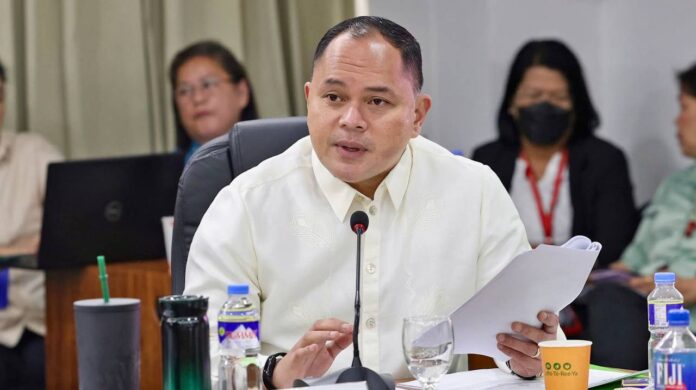The House Committee on Legislative Franchises on Monday voted to conduct a comprehensive review of the National Grid Corp. of the Philippines, following concerns from lawmakers about the company’s apparent noncompliance with its franchise obligations.
The investigation could have significant consequences, as lawmakers warn that NGCP’s actions threaten the reliability of the country’s power supply and may exacerbate the financial burden on electricity consumers.
“There is nothing wrong with us revisiting your franchise, especially since we are examining the specific provisions of the franchise that NGCP enjoys. We will conduct a thorough review and analysis of NGCP’s compliance with its franchise obligations,” said Quezon Rep. and Deputy Speaker Jayjay Suarez told representatives of the utility company during the committee hearing.
The inquiry will also focus on several issues surrounding NGCP’s operations. Lawmakers raised concerns about the company’s failure to meet its maintenance and development responsibilities, delays in critical infrastructure projects that aim to connect island grids and improve power distribution, and rising transmission charges.
A central issue under scrutiny is the Energy Regulatory Commission’s upcoming ruling on a controversial rate reset for the period 2016-2020. The reset, which is expected to be finalized in January, could lead to a 12-centavo per kilowatt-hour increase in transmission charges, despite delays in the completion of major infrastructure projects. Under the ERC’s “as spent” approach, NGCP would be allowed to pass on costs to consumers for infrastructure that is not fully operational.
Laguna Rep. Dan Fernandez argued that this ruling would unfairly burden consumers, as they would be required to pay higher transmission rates even for services that have not been delivered. “NGCP should not be allowed to collect for incomplete projects,” Fernandez said. He noted that consumers are already are already struggling with rising electricity rates.
ERC Chairwoman Monalisa Dimalanta, who opposed the “as spent” method, explained that the approach approved by the majority of ERC commissioners would result in the 12-centavo increase. She argued that, had the approach been rejected, consumers would instead receive a refund of over P1 per kWh, which could provide significant relief to Filipino households and businesses.
In defense of the company, NGCP spokeswoman Cynthia Albanza stated that the utility had followed historical practices and adhered to the rules that have been in place during previous rate resets. She pointed out that the gradual collection of fees from consumers, as opposed to a one-off charge, was designed to minimize the financial impact on the public.
However, Paranaque Rep. Gustavo Tambunting, chairman of the Legislative Franchises Committee, expressed concern over the fairness of asking consumers to pay for uncompleted projects. “NGCP has been fined repeatedly by the ERC for project delays,” Tambunting said. “If they were truly faithful to their mandate under the franchise, we would not be in this situation where consumers are paying for services that have not yet been delivered.”
Energy Undersecretary Sharon Garin added to the criticism, noting that delays in transmission projects have resulted stalled power generation projects and cost investors P324 billion in potential revenue from solar and wind energy projects alone. She explained that these delays have significantly affected the Department of Energy’s power projections, further complicating efforts to stabilize electricity prices, ensure a reliable power supply, as well as spur investments and job creation.







